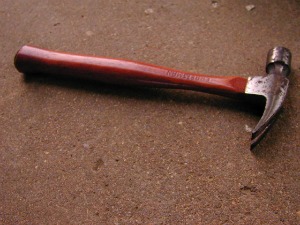How To Buy And Flip Houses | 10 Items For Your Real Estate Tool Belt
To learn How To Buy And Flip Houses, you must first know the essential tools of the business.
 House flipping, and real estate investing in general, can often be a complicated task. There are a great number of variables that can change after you purchase a house, and from property to property. Moreover, flipping can be an incredibly quick process, and one mistake can send all of your profit down the toilet.
House flipping, and real estate investing in general, can often be a complicated task. There are a great number of variables that can change after you purchase a house, and from property to property. Moreover, flipping can be an incredibly quick process, and one mistake can send all of your profit down the toilet.
If you want to know how to buy and flip houses, it is important that you have some vital resources in your back pocket that you can always fall back on. You’ll never know when you might need some extra help.
Knowing the right people and having the right instruments can often make the entire process run smoother and bail you out if you are in trouble.
The Tool Belt List | How To Buy And Flip Houses
Below is a list of the most critical tools that you should always have available when flipping real estate. These items are some of the most important features you need to know when learning how to buy and flip houses.
1. A Good Real Estate Broker
Not every house flipper uses a real estate broker, but it’s a safe bet that they all know one. It’s always good to have a broker, who knows the area and is familiar with the market, in your phone book just in case. Brokers can help you with things like determining an accurate ARV, or “after repair value”, of a property. They also can help you find and sell houses if you need some help.
2. A Calculator
Real estate is largely a game of numbers. An error calculating you MAO, or “maximum allowable offer”, could result in a heavy profit loss. You will need to get a potential property inspected and determine exactly what needs to be renovated and how much it will cost.
Other expenses that will need to be factored in are things like loans, and the cost of maintenance, taxes, insurance, and utilities. If you are a wholesaler, you will need to factor in your wholesaler’s fee to see, not only if it is a profitable purchase for you, but also if it will profit the investor you will end up selling to.
3. A Checkbook
While sometimes you will have no other option but to use loans, if possible, you should try to deal in cash. Whether it is your own money, or the money of a partner or private investor, cash is always the way to go.
If your purchase offer is in cash, you will appear as a more serious buyer than someone paying through finance. This is even more of a factor when buying from a bank in an REO sale or with the probate court when buying a property from a deceased person.
4. MLS
The “Multiple Listing Service”, or MLS, is a great way to...


